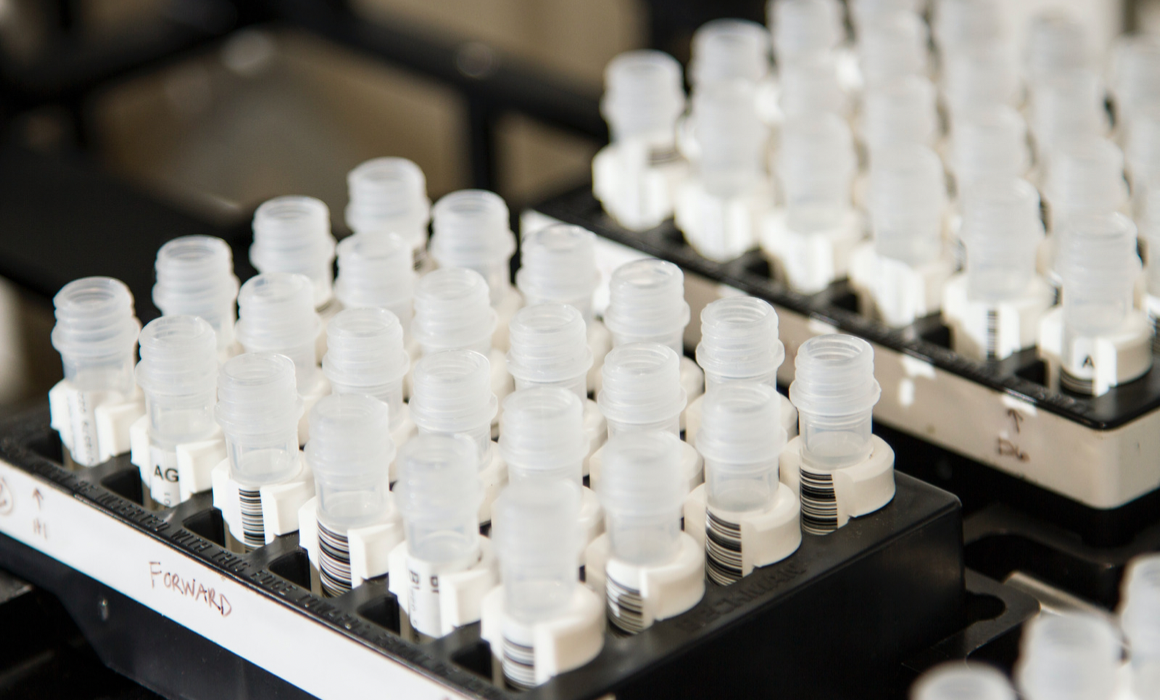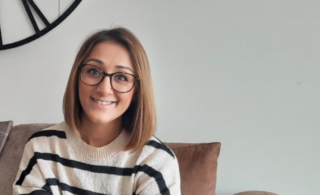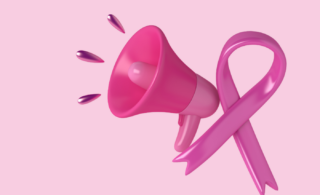
Genetics play a part in someone’s risk of getting breast cancer. In this guest article, Carly Moosah who hosts the Future Dreams BRCA Support Group, talks about finding out that she has the BRCA1 gene, how this impacted her during breast cancer treatment and what it means for her now, post-treatment.
By Carly
What are BRCA genes?
We all are born with the BRCA1 and BRCA2 genes (the BRCA stands for BReast CAncer) but in some of us these genes mutate and instead of protecting us from developing cancers such as Breast, Ovarian, Pancreatic and Prostate, they greatly increase our chances.
For 37 years I walked around unaware that I had a gene mutation that would really increase my risks of getting ovarian and breast cancer. I would say I walked around blissfully unaware but where the BRCA1 and BRCA2 gene mutations are concerned ignorance is not bliss, and knowledge is power. Power to make some difficult decisions that can greatly reduce your risk of developing these cancers.
Doctors sometimes refer to BRCA1 and BRCA2 as tumour suppressor genes that stop the cells in our body from growing and dividing out of control. If the gene is faulty then these cells can get out of control which in turn can lead to cancer.
Around 1 in 400 people have these faulty genes and researchers think that around 70% of women with these faulty genes will develop breast cancer by the age of 80. And around 45% with a faulty BCRA1 gene will develop ovarian cancer by the age of 80, and 20 % with a faulty BRCA2 gene. There is a slightly increased risk of developing prostate and pancreatic too and up to 10% of men with a faulty BRCA2 gene will develop breast cancer (Statistics taken from Cancer Research UK).
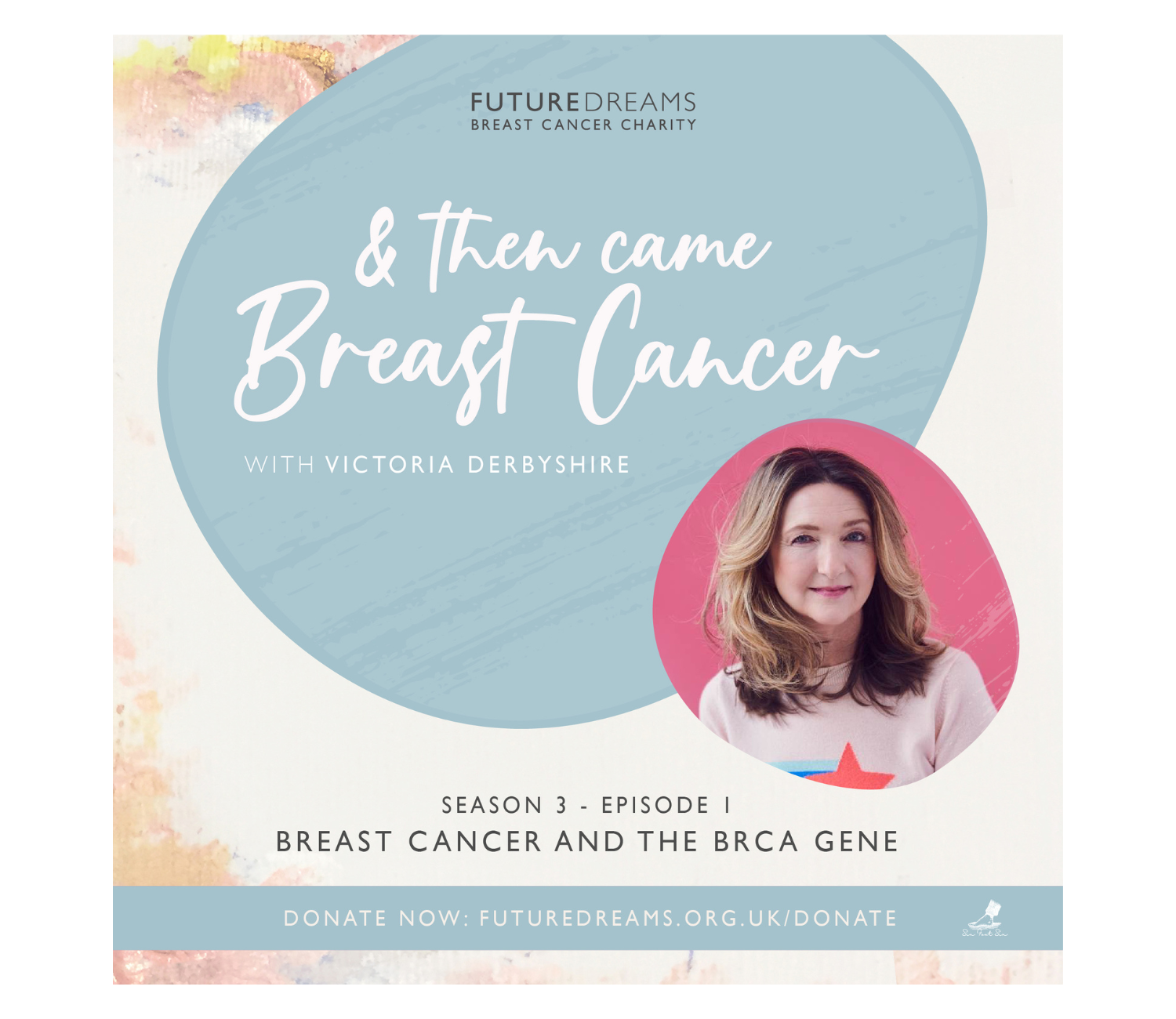
My family history
My beautiful mother died of Secondary Breast Cancer when she was 59 years old after being diagnosed at 54. I was just 27 years old. I’d always had an awareness of breast cancer because I never met her mother – my grandmother – as she had also died from Secondary Breast Cancer (before I was born). I naively thought that if I was going to get Breast Cancer it would come for me in my 50s looking at the family pattern. However, my best friend and my husband were worried about me carrying this gene mutation and urged me to go and get checked. I had some knowledge of the gene and knew that if you carry it then usually you get cancer younger, so I was convinced that my Mum didn’t carry it but decided to go along and have a chat anyway. I didn’t once think I might carry it from my Dad’s side. There was no breast cancer on his side of the family.
Trying to get a genetic test
At 34 I sat across from a genetic specialist who told me that despite a history of Breast Cancer in my family I did not qualify for NHS testing as there was not enough young breast and ovarian cancer. My gene mutation lay dormant. Undiscovered. A deadly ticking time bomb. I felt satisfied with this and left that day thinking I didn’t have to think about breast cancer for a very long time.
My sister’s diagnosis
Two and a half years later my big sister (my half sister on my Dad’s side) was diagnosed with late stage Ovarian cancer and it was discovered she carried the BRCA1 gene mutation. This was a devastating diagnosis for our family. My sister was just 43. When she called me in August 2019 to tell me the genetic results were in and they confirmed she carried the gene I cried. I knew this meant that I needed testing and that there was a 50/50 chance I too carried this gene. I remember calling my husband who knew I was keen to have a third baby and he reassured me that if I carried the gene then we would talk about doing this earlier if it meant I needed the preventative surgeries.

Being diagnosed with breast cancer and getting my genetic test results
However, I never managed to get tested as just a few months later I found a swelling under my armpit and was diagnosed with Stage 2, Grade 3 Triple Negative Breast Cancer. It was suspected with my family history that I carried the BRCA1 gene mutation too but getting the phonecall to confirm this devastated me. I was midway through my chemo and it was the first time I really wailed. I sobbed and sobbed about the fact that I could have passed this gene on to my children. I thought of my little girl and the idea that if she carried this gene mutation too she would have to make decisions that no-one should have to make. To amputate her breasts to prevent her from getting breast cancer as I was now having to do. To consider having her ovaries out as I was now planning to do. To think about having a family and ways that perhaps you can do this so as to remove the gene mutation for the baby. All of these thoughts went through my head. All of this heartache. This guilt. This loss. My little girl was 4 and I was carrying the weight of this potential that we wouldn’t know for such a long time. You are unable to test for the gene mutation until you are 18 years old.
And so I grieved and cried and processed what may lie ahead. I knew this most likely signalled the end of the chance to have that third baby I longed for. During chemo I took a drug called Zoladex to preserve my ovaries in the hope we might be able to try after my chemo finished but knowing I carried the mutation meant that time was of the essence to remove my ovaries and my periods didn’t return regularly once treatment finished so I made the decision to remove them and my risk as opposed to wait and see if they came back but live with the risk hanging over me.
My fears… and hopes
Even now, as I write this – one and a half years after all my treatment finished – it is the fact I carry this mutation that weighs the heaviest. If I veer too far from the present moment I can get lost in the fears that I hold for my kids. I have hope for science, for research, and for the fact that in 15 years things will advance so much. I have hope that they will not carry the mutation themselves. I have hope that if they do they will be able to make decisions that will keep them healthy and not have to face the brutality of cancer. I have hope but I have to stay present to have this hope.
My biggest wish is that everyone who wants to be tested for these genes is able to. Things would have looked so different for my sister and I if I was able to get tested back in 2016. Screening would have allowed for things to have been found earlier perhaps. For preventative surgeries to have been carried out before any cancer was able to grow. So much trauma could have been avoided. So many people are walking around like us, unaware they carry these mutations, unaware of the risk they are in.
31 women die every day from Secondary Breast Cancer in the UK. I wonder if everyone was offered free testing how much this number would decrease. I wonder if it would move the number from 1 in 7 women being diagnosed with breast cancer to a better statistic. I know I may not have been that 1 in 7 had I been gene tested.
My support group
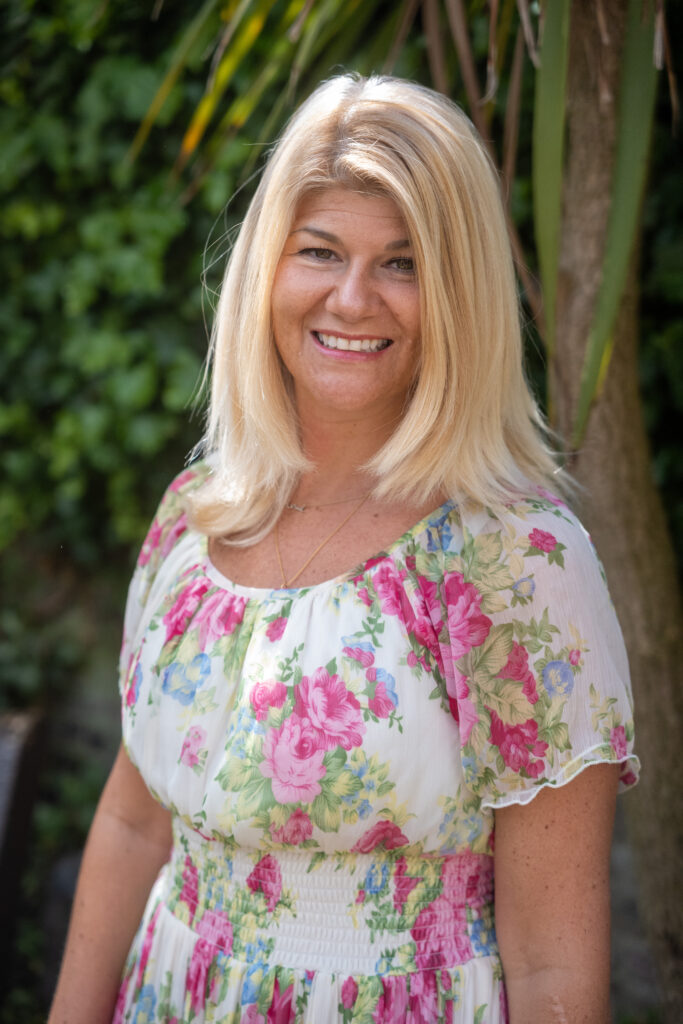
This is why I feel passionately about bringing together a community of people who are facing these decisions. Who need the support from one another who get it. Who get the heavy weight of feeling a little faulty. Who feel responsible for the risk they are potentially putting their children in. Who need only compassion to navigate these moments. Compassion and a safe space to explore all the feelings that come up with finding out you have a BRCA gene mutation. A support group at Future Dreams House in London once a month. A place where we all know what it feels like to be told those words.
If you would like to join Carly and others who have the BRCA genes at one of the month support groups, check out the event dates on the website. Future Dreams hold a range of support groups, classes, workshops and events to help you and your carers during your breast cancer diagnosis. These are held both online and in person at the London-based Future Dreams House. To see what’s on offer and to book your place, see here.
To return to the homepage of our Information Hub, click here where you can access more helpful information, practical advice, personal stories and more.
You can also find community on the Future Dreams Instagram page.
October 2022 (Reviewed October 2023)
This article was written by a guest author based on their own experience of breast cancer and its treatment. It is important to note that this is one person’s experience and that whilst there may be commonalities between the experiences of different people, everyone has a different diagnosis/treatment plan/general experience. The information and content provided in all guest articles is intended for information and educational purposes only and is not intended to substitute for professional medical advice. It is important that all personalised care decisions should be made by your medical team. Please contact your medical team for advice on anything covered in this article and/or in relation to your personal situation. Please note that unless otherwise stated, Future Dreams has no affiliation to the guest author of this article and he/she/they have not been paid to write this article. There may be alternative options/products/information available which we encourage you to research when making decisions about treatment and support.
Share

Support awareness research
Donate to those touched by BREAST cancer
Sylvie and Danielle began Future Dreams with just £100 in 2008. They believed nobody should face breast cancer alone. Their legacy lives on in Future Dreams House. We couldn’t continue to fund support services for those touched by breast cancer, raise awareness of breast cancer and promote early diagnosis and advance research into secondary breast cancer without your help. Please consider partnering with us or making a donation.
